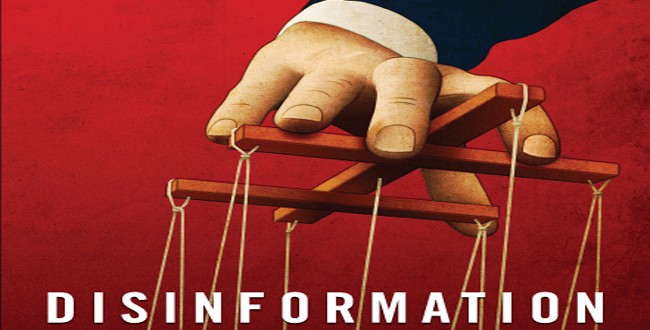The document acknowledges that governments or organized non-state actors take to Facebook to “distort domestic or foreign political sentiment, most frequently to achieve a strategic and/or geopolitical outcome.” There is more to information operations than intentionally false news, Facebook states. Such operations also include the deliberate spreading of the disinformation on social media as well as outreach on traditional media.
Read also: Weakness not strength behind Putin’s new doctrine for broader information war abroad and at home
● targeted collection of non-public data to expose information that can have an impact on public discourse;
● creation of content reflecting this information, either spreading stories to the press or generating stories and images for online use;
● coordinated activity by fake Facebook accounts to amplify content online, including the creation of fake grassroots groups as well as trolling, i.e. fake accounts spamming the comments section on Facebook pages.
Read also: Kremlin disinformation campaign extremely successful – EU East Stratcom
Sounds familiar? Facebook states that it recognized these activity patterns multiple times during the 2016 US presidential election campaign though it asserts that the “reach of the content shared by false amplifiers was marginal compared to the overall volume of civic content during the US election.” This contrasts with the analysis made by Buzzfeed, which concluded that fake news received more engagement (comments, likes, shares) than news by established media in the final three months before the election in November 2016.
When it comes to identifying the source of this information operation, Facebook says that “our data does not contradict the attribution provided by the US Director of National Intelligence,” referring to the assessment of Russian activities published in January 2017.
Read also: Putin said plotting a new refugee crisis to influence EU elections
What does Facebook intend to do about the problem?
As a first step, Facebook promises to help users protect their accounts better and recommends that election campaigns pay particular attention to cyber security. But the real deal is in the action against fake accounts and false amplification of compromised stories. The engineers have observed that “most false amplification in the context of information operations is not driven by automated processes but by coordinated people who are dedicated to operating inauthentic accounts.” This is because the online activity presupposes “people with language skills and a basic knowledge of the political situation in the target countries.”Facebook has taken action against over 30,000 fake accounts in France.
Read also: How Russian propaganda uses Facebook
This reminds us of the reporting about a pro-Kremlin “troll factory” in St. Petersburg where employees are paid to leave comments in online fora and on social media. Facebook targets these via the “authenticity of the accounts in question and their behaviors, not the content of the material created,” for example by detecting repeated posting of the same content and unusual increases in the volume of content creation. The organization claims that it has taken action against over 30,000 fake accounts in France. It provides, in any case, the possibility for its users to report fake profiles.
Read also: Russia’s low-tech trolls in high-power western information space
At the same time, the social media organization says it supports wider efforts to promote quality journalism through its Facebook journalism project, which seems primarily to focus on helping quality news organizations increase their reach and revenues on the platform, and through collaboration with fact checkers for doubtful Facebook content.
Read also: Inside the Kremlin’s media machine
Read also:
- The pro-Kremlin narrative about migrants in Europe
- Deception, Disinformation, and Doubt: Hybrid Warfare in Eastern Ukraine
- Putin’s anti-Ukrainian propaganda playing role state anti-Semitism did in Soviet times, Ikhlov says
- Russia’s coming Time of Troubles
- “Putin tells why Russia is seedbed of terrorism” and other neglected Russian stories
- Self-defense or a blow to democracy? Pro et contra arguments to Ukraine’s ban of Russian Internet companies
- Why Putin can’t allow Ukraine to succeed and why the West must make sure it does
- No one denies Soviet Army defeated Hitler but Russians won’t admit it occupied those it liberated, Tatyana Ross says
- Containment of Putin’s Russia in today’s globalized world won’t be easy or even enough








